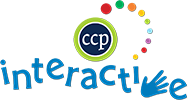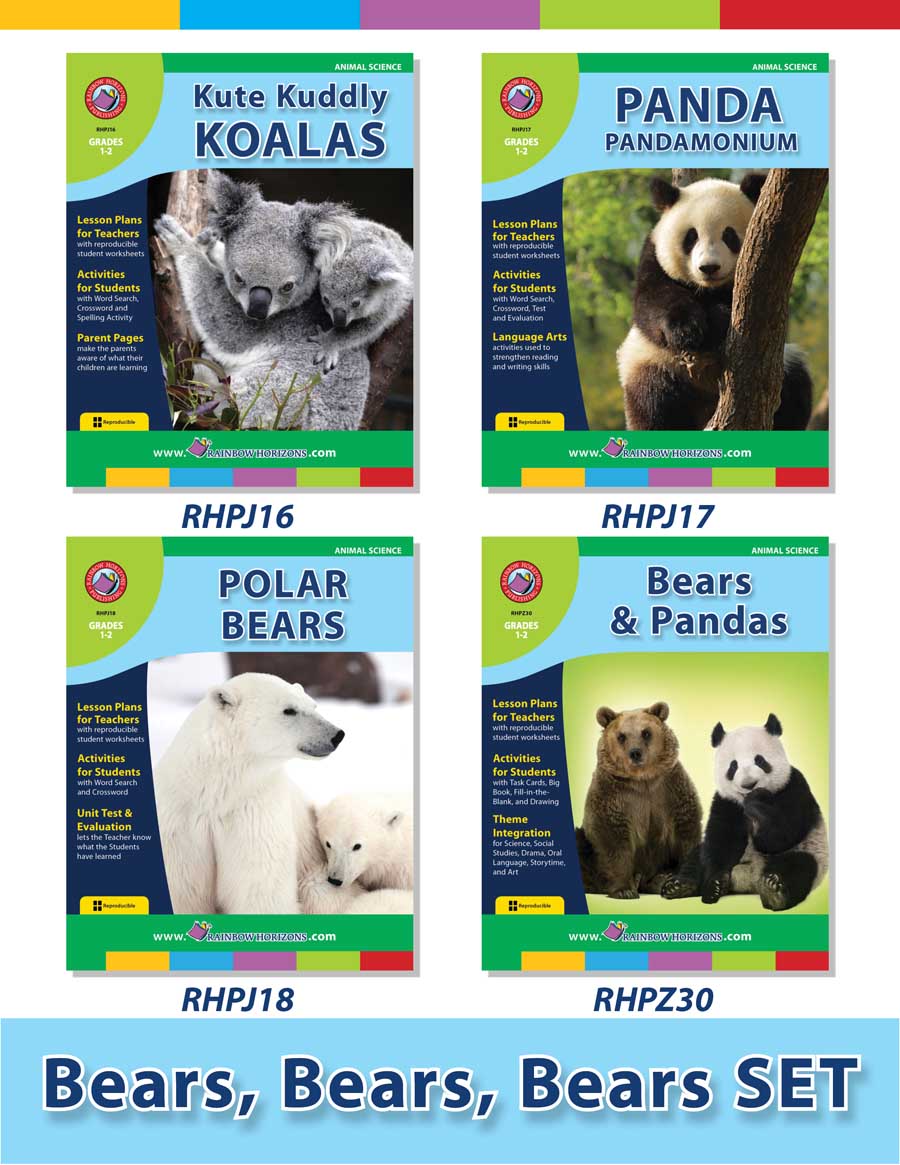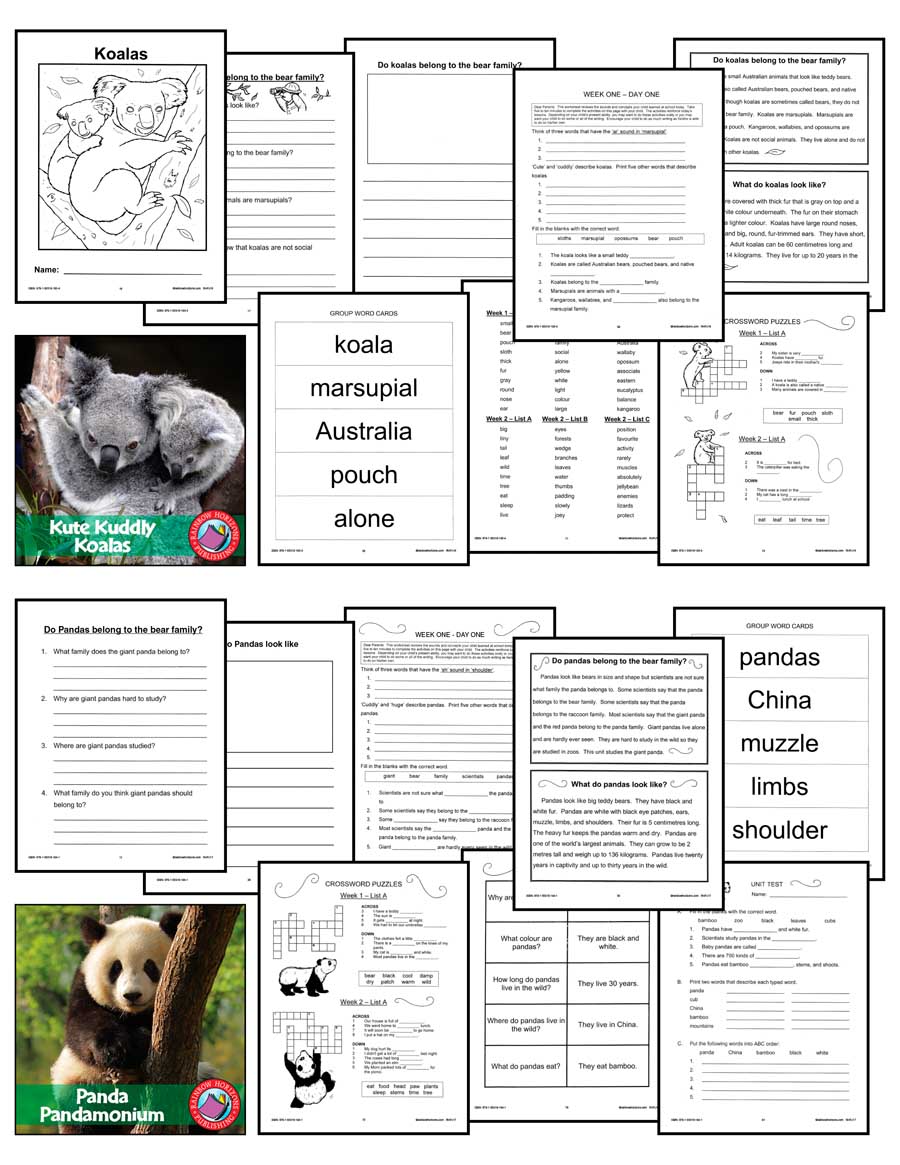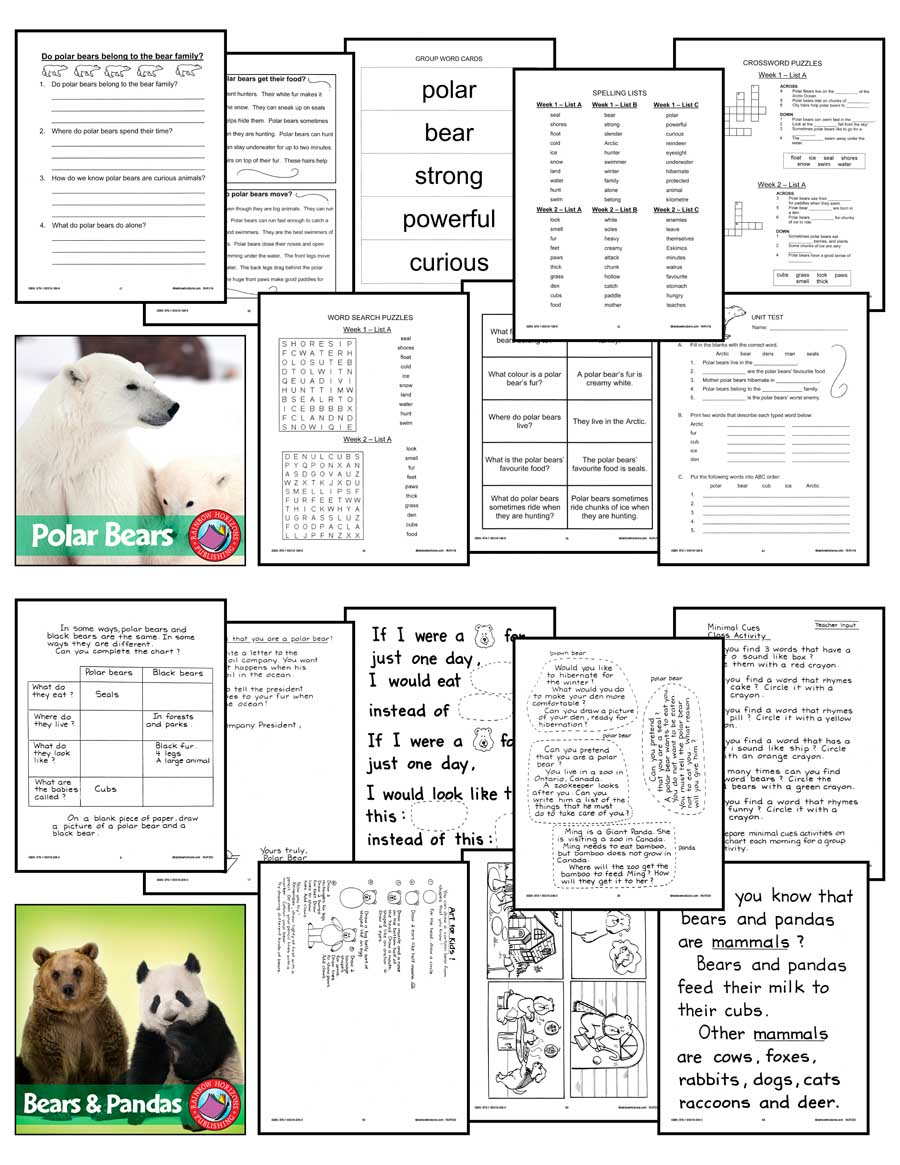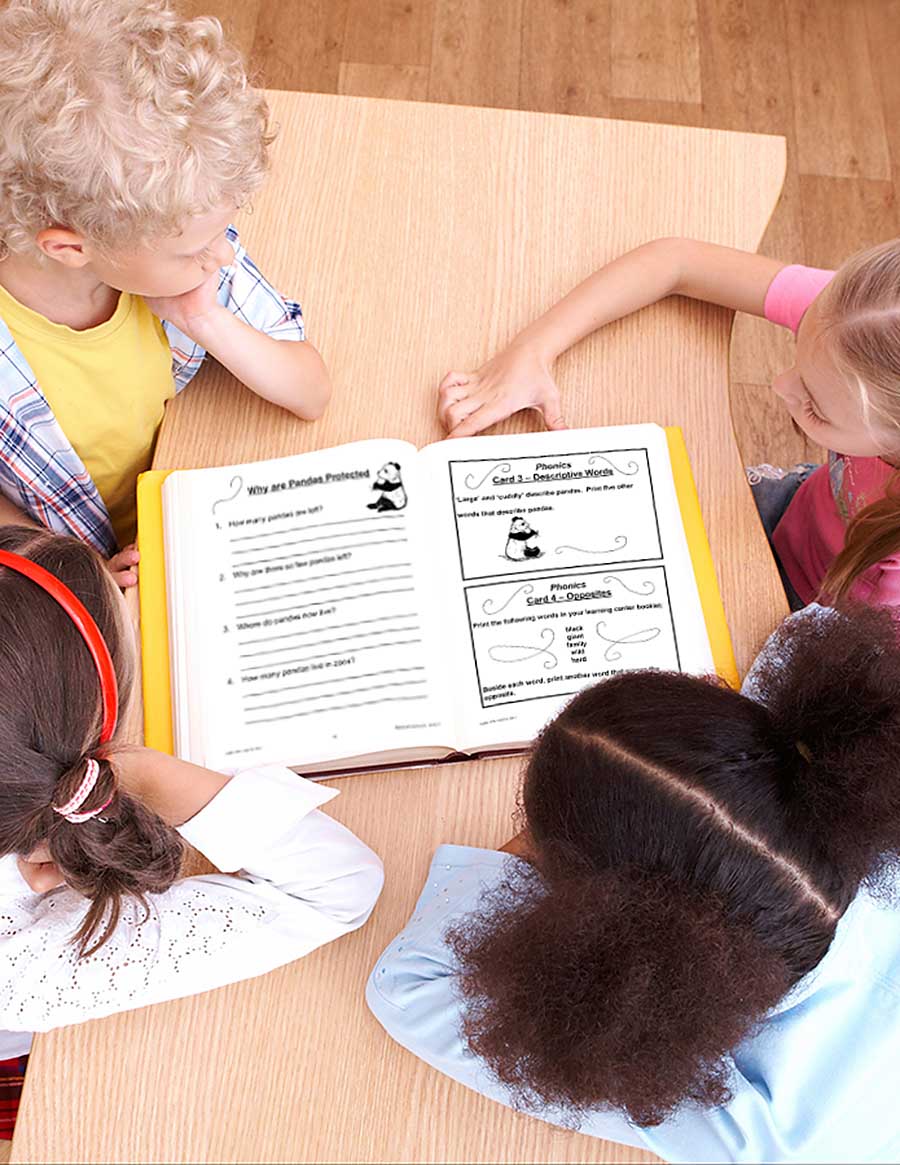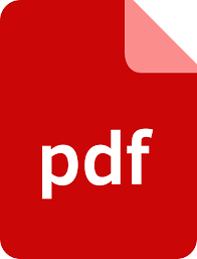Life Science >
Grades 1, 2 >
Bears, Bears, Bears SET
Bears, Bears, Bears SET
Grades 1 to 2 - Print Book - Lesson Plan

Order #: SET110
ISBN13: 978-1-77167-527-7
Grades: 1, 2
Reading Level: 1-2
Total Page: 186
Author: Natalie Regier and Vera Trembach
Tweet
Description
Our Bears, Bears, Bears SET combines 4 titles in one bundle:
JSLA16 - Kute Kuddly Koalas
JSLA17 - Panda Pandamonium
JSLA18 - Polar Bears
Z30 - Bears and Pandas
About Kute Kuddly Koalas:
These "Teddy Bears" are guaranteed to keep student interest at its highest in this science and language arts unit of study. Major topics are: What Do Koalas Look Like?, Where Do Koalas Live?, What Do Koalas Eat?, Food, How Do Koalas Move?, Do Koalas Hibernate?, Koala Cubs, and Enemies. Each lesson includes a spelling activity, a brainstorming activity, a study of new words, work in the student booklet, a writing activity, work at the learning center and a parent page. Includes group word cards, individual word cards, learning center checklist and activities, spelling words, unit quiz and evaluation.
Panda Pandamonium:
Are Pandas really bears??? Find out with this two-week, integrated science and language arts unit that is sure to keep student interest at its highest. Students brainstorm, study words, alphabetize, rhyme, categorize words, work with synonyms, work with antonyms, read, answer questions in complete sentences, and complete writing activities. Major topics are: Do Pandas Belong To The Bear Family?, What Do Panda Bears Look Like?, Where Do Pandas Live?, What Do Pandas Eat?, How Do Pandas Get Their Food?, Do Pandas Hibernate?, Panda Cubs, Panda Enemies, and Why Are Pandas Protected?
Polar Bears:
Polar Bears is a two-week science and language arts unit intended for use with Grade One or Two children who have developed some independent reading and writing skills. It can be used to further strengthen the children's reading and writing skills. Throughout this unit, children are involved in activities that focus their attention on language and how it is used. They brainstorm, study words, alphabetize, rhyme, use descriptive words, categorize words, read, answer questions in complete sentences, and complete writing activities. They are encouraged to use their knowledge of reading strategies to help them read the polar bear fact cards.
Bears and Pandas:
The theme of Bears and Pandas can last a couple of months in the classroom. It is a theme that is well provided with resources. There are endless storybooks written with bears and pandas that can be used in your whole language program. You need not be an expert on bears or pandas. With a large selection of resource material available, you can research any questions. For Social Studies hang a world map. Plot the locations of different kinds of bears or pandas. Use the patterns in this package for map markers. For Drama, act out the play, "The Three Bears". Have a teddy bear picnic with peanut butter sandwiches, and of course, the Teddy Bears. For Oral Language, recite simple bear chants in the morning.
This Animal Science Set provides a teacher and student section with a variety of reading passages, lessons, activities, task cards, crossword and word search to create a well-rounded lesson plan.
JSLA16 - Kute Kuddly Koalas
JSLA17 - Panda Pandamonium
JSLA18 - Polar Bears
Z30 - Bears and Pandas
About Kute Kuddly Koalas:
These "Teddy Bears" are guaranteed to keep student interest at its highest in this science and language arts unit of study. Major topics are: What Do Koalas Look Like?, Where Do Koalas Live?, What Do Koalas Eat?, Food, How Do Koalas Move?, Do Koalas Hibernate?, Koala Cubs, and Enemies. Each lesson includes a spelling activity, a brainstorming activity, a study of new words, work in the student booklet, a writing activity, work at the learning center and a parent page. Includes group word cards, individual word cards, learning center checklist and activities, spelling words, unit quiz and evaluation.
Panda Pandamonium:
Are Pandas really bears??? Find out with this two-week, integrated science and language arts unit that is sure to keep student interest at its highest. Students brainstorm, study words, alphabetize, rhyme, categorize words, work with synonyms, work with antonyms, read, answer questions in complete sentences, and complete writing activities. Major topics are: Do Pandas Belong To The Bear Family?, What Do Panda Bears Look Like?, Where Do Pandas Live?, What Do Pandas Eat?, How Do Pandas Get Their Food?, Do Pandas Hibernate?, Panda Cubs, Panda Enemies, and Why Are Pandas Protected?
Polar Bears:
Polar Bears is a two-week science and language arts unit intended for use with Grade One or Two children who have developed some independent reading and writing skills. It can be used to further strengthen the children's reading and writing skills. Throughout this unit, children are involved in activities that focus their attention on language and how it is used. They brainstorm, study words, alphabetize, rhyme, use descriptive words, categorize words, read, answer questions in complete sentences, and complete writing activities. They are encouraged to use their knowledge of reading strategies to help them read the polar bear fact cards.
Bears and Pandas:
The theme of Bears and Pandas can last a couple of months in the classroom. It is a theme that is well provided with resources. There are endless storybooks written with bears and pandas that can be used in your whole language program. You need not be an expert on bears or pandas. With a large selection of resource material available, you can research any questions. For Social Studies hang a world map. Plot the locations of different kinds of bears or pandas. Use the patterns in this package for map markers. For Drama, act out the play, "The Three Bears". Have a teddy bear picnic with peanut butter sandwiches, and of course, the Teddy Bears. For Oral Language, recite simple bear chants in the morning.
This Animal Science Set provides a teacher and student section with a variety of reading passages, lessons, activities, task cards, crossword and word search to create a well-rounded lesson plan.
